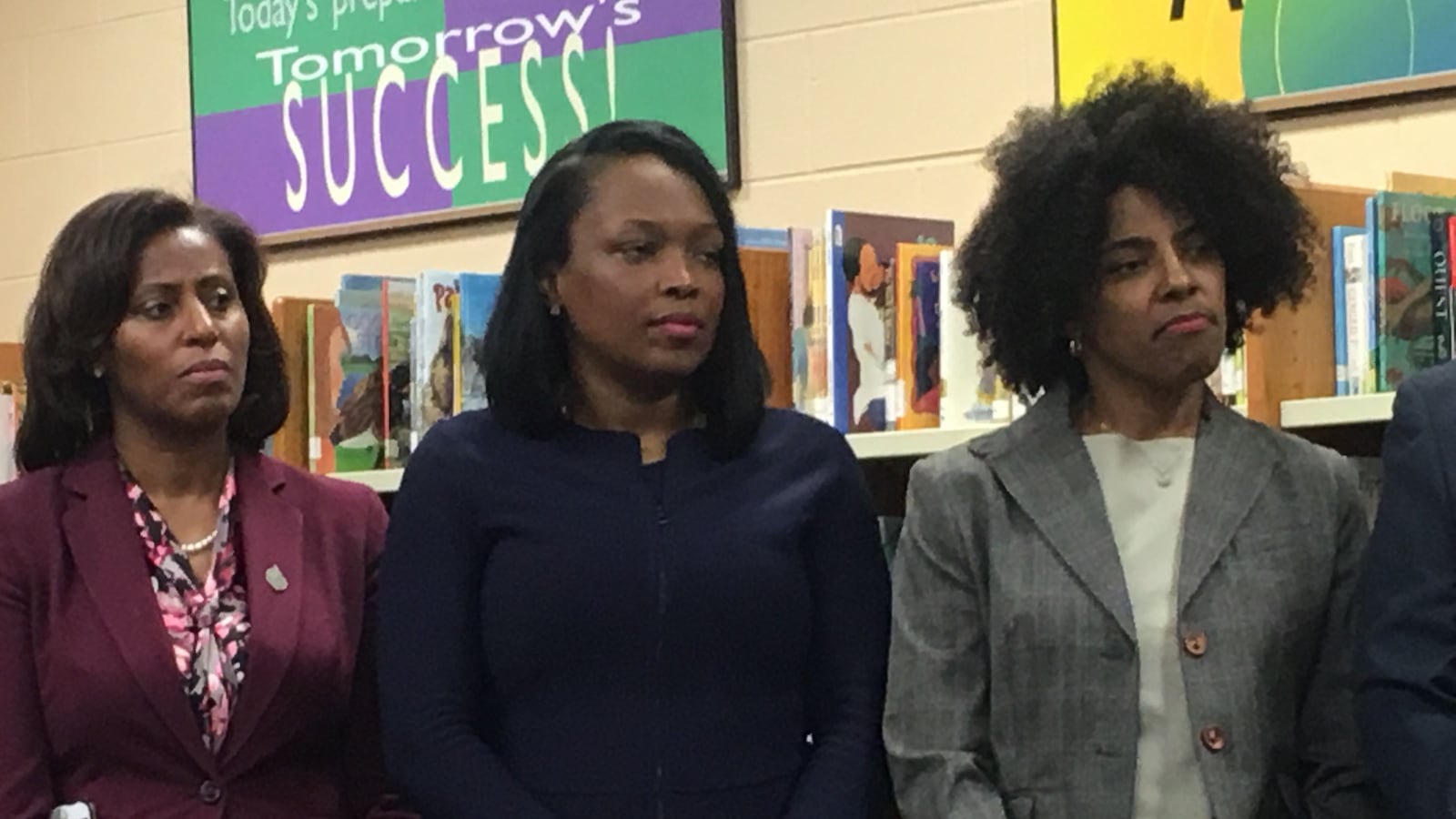Education is getting new prominence in Chicago’s City Hall, as new mayor Lori Lightfoot names a deputy mayor focused on the city’s schools.
Sybil Madison, one of four chairs of Lightfoot’s education transition team, will be the city’s first deputy mayor of education and human services, Lightfoot announced Monday.
Lightfoot’s predecessor, Rahm Emanuel, at times had a chief of staff tasked with leading City Hall’s education agenda, but the new position elevates the role to the second-highest level in city government.
Related: Chicago Mayor Lori Lightfoot has trusted this deputy to oversee schools. What’s her plan?
Madison will be the City Hall counterpart to the school district’s Janice Jackson, whom Lightfoot reappointed as schools CEO in one of her first acts after being sworn in. Close coordination between City Hall and the district will be key if Lightfoot executes on her promise to transition the appointed school board to one elected by city residents, a move that could effectively end mayoral control of the city’s schools.
Madison directs the Chicago City of Learning, a coalition of youth organizations focused on connecting students to learning opportunities. She is also a research associate with Northwestern University’s Office of Community Education Partnership and a former official at Chicago Quest Schools, a charter operator running part of Chicago International Charter School. She also served with Lightfoot on the city’s Police Accountability Task Force.
Related: Mayor Lori Lightfoot appoints new seven-member Chicago school board
Lightfoot introduced her new deputy Monday at a press conference at which the mayor unveiled her seven-person Chicago school board. She said she’s known Madison for some years through Amy Eshleman, Lightfoot’s wife and a former Chicago Public Library assistant commissioner. Together, Eshleman and Madison worked on projects “focused on thinking about learning beyond the classroom setting and really making sure that we are meeting the learning needs of our young people 24 hours a day, not just during the school day,” Lightfoot said.
“She’s a mom, with two kids, and she is going to be a great leader for our education and human services activities here in Chicago,” Lightfoot added.
Madison shared what she learned running Chicago City of Learning on a blog she maintained from 2013 to 2015. Her insights could offer a window into the thinking she will bring to the deputy mayor position and suggest that her organization could offer one model for tackling the equity gaps as Lightfoot had promised during her campaign to address.
Chicago City of Learning was inspired by issues raised during the 2012 teachers strike, Madison said in a 2016 interview, and quickly identified “learning deserts” where children had few opportunities to learn coding. Then the group solicited funding to bring coding courses to those communities.
That effort represented only the beginning of what Chicago needed to ensure that children in low-income neighborhoods have access to the same resources as students in more affluent areas, Madison said.
“We know as we continue to get better at populating the learning ecosystem, we will continue to identify concerning trends, and we look forward to supporting community stakeholders in developing innovative approaches to addressing those concerns.”
At the same time, Madison wrote on her blog in 2015, the organization found that its potential impact was limited.
“We all know that ‘if you build it,’ they won’t necessarily come!” she wrote. “We also know that if what you build is situated in a societal context that has not changed structurally, then those who are less resourced are least likely to find ‘it’ and reap its benefits. In order to achieve equity within a robust learning ecosystem, one must do so ‘by design.’”

